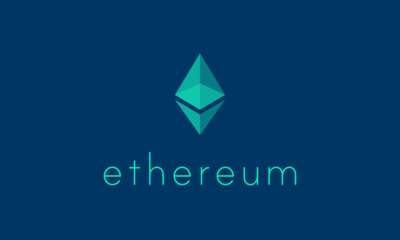Crypto is riskier than many other investments. Nothing is guaranteed other than volatility. What’s more, it’s unregulated in most cases. There is no FDIC insurance for this stuff, nor is there a buyer of last resort. The prices of crypto coins swing wildly from minute to minute. While the market is basking in the glow of bull run, it has endured painful and protracted corrections and almost certainly will again.
Danger varies in degree. Bitcoin, the original cryptocurrency, has been around for more than a decade and it’s significantly less likely to disappear than most other coins. But it’s not free of risk either.
Hence, don’t bet the proverbial farm, or your life savings, on any coin.
Before you invest a significant amount of money in any digital currency, spend hours upon hours researching the technology so you understand the value proposition and the risks. (“Someone else will buy it from you for a higher price” is not a value proposition.)
Read everything you can find on the topic. (CoinDesk’s Learn section is a fine place to start, and our Research Hub can be your next stop.) Lurk on community forums and developer mailing lists. Listen to podcasts. Borrow books from the library, not only about digital currency but related fields like cryptography, game theory and economics. Read CoinDesk and even some of our competitors.
Go to local meetups, if your area is no longer on COVID-19 lockdown. Ask lots of questions. If you don’t understand what you’re hearing, don’t be afraid to ask someone to explain. If it is still not making sense, don’t assume that’s on you; people could just be talking gobbledygook. The sincere ones will take the time to help, but even then be wary of people “talking their book” (telling you to buy what they own so the price goes up).
And even if you’re convinced, seek out skeptics (there is no shortage of them) and consider their arguments as well. Remember John Stuart Mill: “He who knows only his own side of the case knows little of that.”
Once you think you’ve researched everything there is to know, do even more work. You’re probably not done yet.
If the only reason you’re investing in something is to avoid missing out, the only thing you won’t miss out on is losing everything.
Fear of missing out (FOMO) is a sure way to destroy whatever wealth you may have accumulated over the years. The problem is that it’s a gut reaction to something that should be researched first. Trading based on your gut will quickly lead to an upset stomach.
Know what you’re buying. Really know it. Going on a trading app and seeing a currency is up 30% or so over the past 24 hours isn’t research. It could be you’re the unlucky sap being sold a falling cryptocurrency.
Every coin has pumpers (shameless promoters), even bitcoin. Don’t succumb to peer pressure. This isn’t high school. Think for yourself and evaluate the case for an investment on the merits.
Research. Then research again.
Much like Wall Street, the U.S. Congress or the American Bar Association, crypto is rife with charlatans. There are more than enough people promising their project will be the one to overtake bitcoin. But is it? There’s only one way to find out: Research.
Buyer beware, but also borrower beware. Some crypto exchanges offer more than 100x leverage, meaning you can borrow up to 99% of the cost of an investment. This will juice your profits if a coin goes up in value, but if it goes the other way you could quickly be wiped out.
Scammers abound in this market. Just this past weekend, some rascals on Twitter took advantage of Elon Musk’s appearance on television’s “Saturday Night Live” to defraud people out of $100,000 worth of various cryptos with a bogus “giveaway.” Impersonating the comedy show’s Twitter account, the miscreants instructed their victims to send small amounts of crypto to verify their addresses. If they did so they would get 10 times the amount back.
That too-good-to-be-true proposition was a red flag. Read this, this and this for more telltale signs.
Just because a coin is trading around $1 does not mean it’s “cheaper” than bitcoin at $58,000. Not all coins are created equal.
There are literally thousands of cryptocurrencies, some of which seek to emulate bitcoin and some of which try to solve other issues. They all have varying levels of developer support and decentralization.
Determining the value of a coin means asking how and why was the coin created. What is its supposed utility? Who is working on it? How big is the developer community? How active is the repository on GitHub, where updates to the open-source software are usually logged? Like a building, a codebase requires maintenance, and neglect can leave a structure unsound.
Crucially, what is the coin’s security model – proof-of-work, proof-of-stake or something else? If it’s the former, how does the hashrate compare to other PoW coins? If you don’t know what these terms mean, you’re not ready to invest.
7. Not your keys, not your coins
Cryptocurrency is a bearer asset like cash or jewelry, meaning the holder is presumed to be the rightful owner. Once it’s lost or stolen it’s gone.
That is why advanced users will advise you not to entrust the cryptographic keys to a digital currency wallet to a third party, such as an exchange, because these firms are largely unregulated in many places and may be subject to hacks or exit scams (absconding with clients’ money).
Decentralized finance (DeFi) platforms have fallen prey to numerous high-profile exploits over the past 10 months, and centralized platforms like Binance have been subject to their fair share as well.
However, safeguarding keys yourself, on a hardware device or even a piece of paper with the string of numbers and letters written on it, can be a nerve-racking business, and it’s easy to mess up. This is why even some experienced investors prefer to use third-party custodians.
Crypto is all about trade-offs. Do you trust yourself not to lose that piece of paper or forget the “seed phrase” (a password for a key that unlocks your crypto)? If not, you have to be comfortable with someone else storing your digital valuables, and history gives you every reason not to.
(To mitigate the risks, there is something called a multi-signature wallet. These can be configured so that, for example, both Bob and Alice must sign off on a transaction to release funds from a wallet, or either Bob or Alice can do so, or three of Bob and Carol and Ted and Alice, and so on. But yes, it’s complicated.)
Aside from exploits, exchanges may block you from withdrawing your funds at any time for a variety of reasons ranging from solvency issues to legal trouble. Even beyond that, some exchanges just don’t have the infrastructure necessary to remain up at all times – Coinbase and Robinhood, for example, often go down during periods of market volatility. If you aren’t running your own wallet, you can’t guarantee you have control over your coins.
That said, there are various reasons why you might want to use an exchange, so it’s important to check the user agreements and make sure you’re protected against different eventualities.
8. You can buy a fraction of a bitcoin (and most other cryptos)
You don’t need to buy a whole coin. Bitcoin, for example, is divisible to the eighth decimal. So if you’re curious about how this stuff works, you can purchase as little as $10 worth and just play around with it.
As billionaire Mark Cuban recently said on television of buying small amounts of dogecoin, “it’s a whole lot better than a lottery ticket.” Unfortunately, he also encouraged viewers to spend doge on merchandise without mentioning the tax implications (see below).
9. Understand the tax consequences
This is especially important in the U.S., for several reasons. First, the Internal Revenue Service (IRS) considers crypto property, not currency, for tax purposes. The upshot is if you buy a coin for $1 and it doubles in value and you spend that extra dollar to buy so much as a pack of chewing gum, you are required to report that capital gain and pay tax on it. There is no “de minimis exemption,” despite the crypto industry’s lobbying efforts.
Also, centralized exchanges regularly send account information to the IRS. Sure, crypto isn’t as regulated as stocks or banks. However, the federal government is running a massive deficit and it won’t think twice about sending in folks with mirrored aviator glasses to visit you to ask about your crypto trades.
10. Buy using dollar cost averaging and don’t obsess about price
Go outside. Get some fresh air, exercise and sunshine. Spend time with your family. You can do all that AND invest in crypto.
The markets will fluctuate from day to day, hour to hour, minute to minute, but any crypto worth a damn, any investment of any kind worth a damn, is a long-term bet. If you want a dopamine hit, go for a run or watch an action movie.
What’s the best way to invest and not obsess? It’s using
dollar cost averaging (DCA). Buy a set dollar amount of whatever crypto you like at regular intervals (Daily? Weekly? Monthly? Annually? You pick.) and don’t look at it.
If you have a long-term view, you’re not going to be pressured to sell or up your position based on short-term movements if you use DCA.




 Naira4 weeks ago
Naira4 weeks ago


 Naira3 weeks ago
Naira3 weeks ago


 News4 weeks ago
News4 weeks ago
 Travel4 weeks ago
Travel4 weeks ago




 Naira4 weeks ago
Naira4 weeks ago
 Naira3 weeks ago
Naira3 weeks ago


 Jobs3 weeks ago
Jobs3 weeks ago


 Travel3 weeks ago
Travel3 weeks ago



















